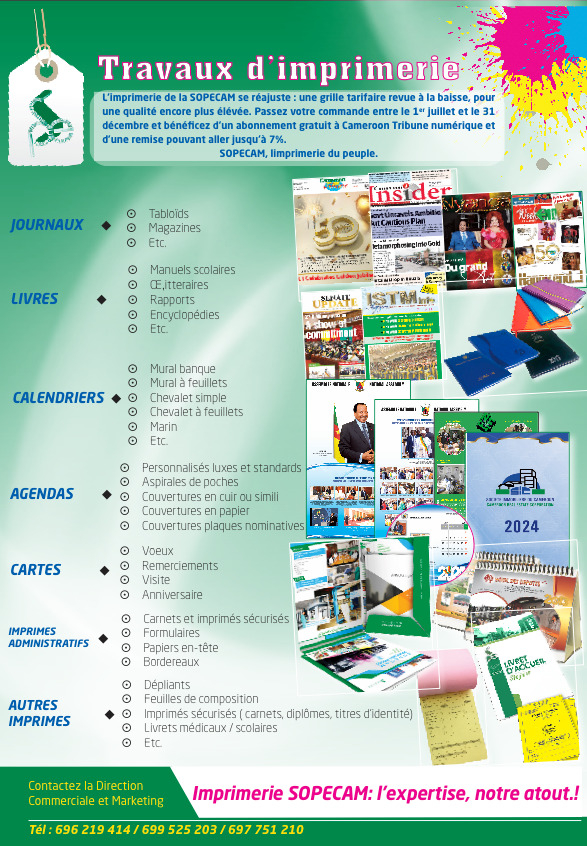Concrete Actions Are Indispensable!
- Par Godlove BAINKONG
- 14 janv. 2022 11:50
- 0 Likes
When President Paul Biya on December 31, 2021 cautioned Cameroonians that, “if we have to meet the growth challenge, we must strive to reduce our imports and increase the volume of our exports by boosting domestic production,” many might have taken it lightly. But the state of affairs in the world for some time now which has effects on market supply and demand and obviously on people’s living conditions calls for deep reflection and revolutionary actions.
Cameroon’s dependence on the outside world even to feed the population with what can be produced at home makes the local economy shaky in the face of the slightest global hitch. For a country with huge agro-pastoral potentials to almost always shiver each time importers raise concerns on their businesses is puzzling and even disgraceful. Little wonder the country’s trade balance keeps deteriorating given the huge imports of finished products against the exports of basically raw materials whose value is nothing compared to what is shipped in.
Taking a decision like what government did late last year, on the behest of the Head of State, to reduce by 80% the sea freight transportation cost to be included in calculating customs duties following threats from importers with regards to the damaging effects of Covid-19 was salutary but not sustainable. Inasmuch as the move presumably sought stabilising selling prices in the market, the effects on revenue mobilisation can be devastating. Such a move can at best bring a short-term or even cosmetic solution to a problem that is deeper than presented. Rather, threats from importers would have been an opportunity for the local production to emerge were it substantial in quality and quality. Unfortunately, the country is reportedly lagging behind in mass consumption products like fish, rice and other cereals.
If government statistics indicating that national fish production totals about 230,000 tons against demand estimated at over 450,000 tons per annum while the gap between demand and supply of rice is around 400,000 tons are anything to rely on, then the country needs to go beyond sloganeering. Journeying from yesteryear’s second-generation agriculture and green revolution which remained largely on paper to make a difference in today’s import substitution policy requires in-depth and well outlined strategies with concrete actions.
The Head of State’s wish that Cameroonians should pro...
Cet article complet est réservé aux abonnés
Déjà abonné ? Identifiez-vous >
Accédez en illimité à Cameroon Tribune Digital à partir de 26250 FCFA
Je M'abonne1 minute suffit pour vous abonner à Cameroon Tribune Digital !
- Votre numéro spécial cameroon-tribune en version numérique
- Des encarts
- Des appels d'offres exclusives
- D'avant-première (accès 24h avant la publication)
- Des éditions consultables sur tous supports (smartphone, tablettes, PC)













Commentaires